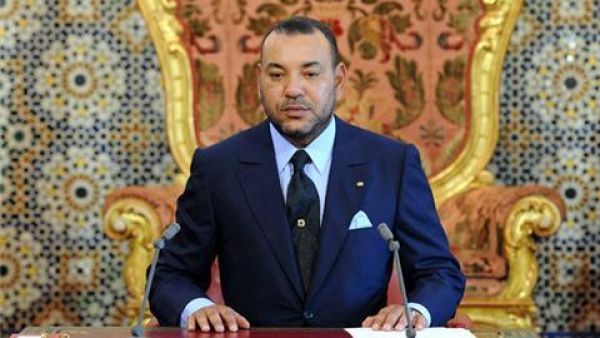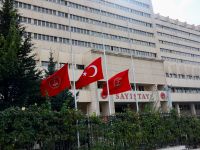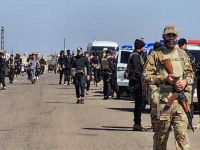Moroccan King Mohammed VI told reporters late Wednesday that his country did not "need lessons from anybody" on its human rights record particularly in the annexed Western Sahara, according to Agence France-Presse.
Speaking at an event commemorating the Green March of 1975 in which Morocco sent tens of thousands of soldiers to the Western Sahara territory after Spanish colonialists abandoned their claims to the land, the King told reporters that the human rights situation in the Western Sahara is "far worse" in non-Morocco controlled areas: "Anybody who takes issue with Morocco only has to go down to Tindouf and check the numerous human rights violations in the surrounding area."
Many exiled Sahrawis who previously resided in Western Sahara until Morocco's takeover of the territory now live in the Tindouf refugee camps in Algeria.
The Western Sahara conflict has been at the heart of tensions between Morocco and Algeria, who backs the Polisario Front, the main Sahrawi party that has advocated for the territory's independence for decades. The King thus made sure to reserve some critical comments for Algiers, saying that Morocco "[would not be lectured to], particularly by those who systematically trample on human rights," in an allusion to Algerian President Abdelaziz Bouteflika's recent comments on Western Sahara human rights violations that caused protests in Casablanca last week.
The King also reserved further criticism for its ally, the United States, in response to Washington's failed effort to give the UN peacekeeping force for the Western Sahara unprecedented human rights monitoring powers. "Is there a crisis of confidence between Morocco and certain decision-makers in its strategic partners on the human rights issue?" he asked.
In recent weeks, bloody clashes were reported between pro-independence protestors and Moroccan security officials during a UN envoy visit to the territory.
Despite the recent clashes, the Sahrawis and Moroccans have for the most part upheld a UN-monitored ceasefire since 1991, but tense divides between Morocco, the Polisario and its Algeria supporters have undermined efforts to reach a permanent solution and settlement for the conflict.









